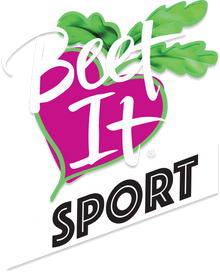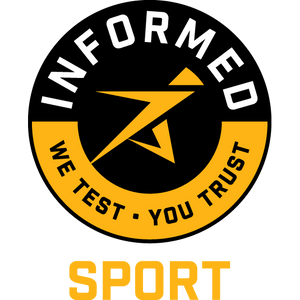
Shawn Pitcher
Shawn Pitcher is a registered sports dietitian based in Atlanta, Georgia, with eight years’ experience working with athletes from a range of levels in the US (high-school, D3, D2, D1...
Shawn Pitcher is a registered sports dietitian based in Atlanta, Georgia, with eight years’ experience working with athletes from a range of levels in the US (high-school, D3, D2, D1 NCAA, Pre-Olympic, IMG Academy NFL combine Prep and NBA). Shawn regularly recommends Beet It Sport to his athletes and says the following:
“We encourage athletes to intake one or two Beet It Sport Nitrate 400 shots 1-3hrs prior to training - nitrates can help by vasodilating the blood vessels which encourages increased oxygen and nutrients to the muscle, increased exercise capacity, improved muscle contraction, improved performance, and immune health benefits.”
Getting to Know Shawn
1. How did you first get involved in dietetics?
My interest started in high school. I started in athletics at 7 years old. I was quite overweight at the time and was trying to find an everything and anything on the internet on how to improve my fueling for sport. In high school we had a teacher who taught cooking, nutrition, and home economics. Her daughter was a dietitian. My teacher, her daughter and my school counsellor made me aware that this was an opportunity I could pursue in college.
I was able to find a school that I could play football and do dietetics and nutrition which was at Buffalo State University. My first exposure to sports nutrition was through one of my professors. She got me in contact with several sports dietitians at the time which springboarded my knowledge on how to carve into the field.
2. What type of sports and at what level have you worked in?
I have had the opportunity to work with a wide range of sports, including football, men’s soccer, men’s lacrosse, men’s and women’s basketball, men’s and women’s golf, softball, baseball, and track. Throughout my career, I have worked with athletes at various levels, from middle school and high school (ages 13–19) to Division III, Division II, and Division I programs. My experience also includes working with pre-Olympic athletes such as Garrett Appier, supporting IMG Academy’s NFL Combine Prep, and, in my previous role, being part of a team that helped develop five players who advanced to the NBA.
3. What do you like most about working as a dietitian in sport?
The lightbulb moment and watching athletes apply what you recommended to them in real time. To see them succeed, improve, and help them as they transition to future levels of sport, and I was lucky enough to be a piece of their puzzle along that journey is very satisfying as a practitioner.
4. What are some of the key nutritional takeaways that athletes get from you?
40-60% of your day is spent doing 3 things: Eating, Sleeping and Hydrating. Each of these can have a direct impact on your performance, injury risk and overall health. You must do them every day, and you can’t stop doing them. Invest in these tools now so that it fosters the behaviours and nutrition skill acquisition that’ll help you throughout a lifetime.
5. What advice do you have for athletes who do not have access to a sports dietitian?
For athletes who do not have direct access to a sports dietitian, there are still many valuable options available. They can start by utilizing free resources such as AND, SHPN, USOC, CPSDA, AIS, SDA, Nutrition.gov, the Dairy Alliance, and other food organizations. The Eat 2 Win app by Tavis Piattoly is also a practical tool for nutrition guidance. Athletes should also seek support from their network by asking a booster, athletic director, coach, parents, or their school to consider investing in a sports dietitian, even if it begins with small steps like one-on-one sessions, group talks, or focusing on a single sport at first. Additionally, reaching out locally can be beneficial, as many sports dietitians in private practice, colleges, or professional settings may be willing to provide free or low-cost talks and guidance for schools and teams.
6. What advice do you have for someone looking to become a sports dietitian?
- Get hands-on experience early by volunteering with a school that has a sports dietitian.
- Communicate constantly — strong communication is key in the role.
- Ask questions — don’t just stay behind the counter.
- Adopt a growth mindset — learn from everyone, from the custodian to the CEO.
- Define your unique value — what sets you apart in a program.
- Pursue a master’s degree that complements your career (business, psychology, exercise science/kinesiology, social media).
- Accept mistakes as learning opportunities — they help you grow as a practitioner.
- Know your worth — value your skills and expertise.
7. How do you communicate the use of sports supplements to athletes?
Always rely on high-quality, research-backed sources when it comes to sports nutrition. Seek guidance from a Registered or Licensed Dietitian, or professionals with a PhD in Nutrition or Dietetics, to ensure the information you follow is accurate and safe. Avoid falling for social media hype, as popularity does not equal expertise — many influencers promote products purely for money and attention rather than genuine benefits. To protect your health and performance, only choose third-party tested supplements that are certified safe and free from banned substances. Trusted examples include NSF Certified for Sport, Informed Choice for Sport, BSCG, USP, Examine.com, and the Natural Medicines Database.
8. Which sport would you most like to work in and why?
Football has been a personal passion since childhood, continuing through the college playing days and extending into a deep interest in following both college and NFL football. Beyond the love for the game, the overall mission is to make a meaningful impact on athletes across all sports — not only helping them elevate their performance but also guiding them to become better humans and positive role models through the power of proper nutrition.
9. Why are you such a fan of Beet It Sport products?
- While pursuing his PhD at Ole Miss, Shawn planned a study on beet juice with Olympic sport athletes to test its effect on resistance training and competition.
- During research, Beet It consistently appeared in scientific literature as the leading beetroot product.
- Since 2006, Beet It Sport has been featured in over 250 published studies, proving its strong research foundation and benefits for athletes.
10. What role does Beet It Sport play for the athletes you manage?
Beet It Sport plays a key role in supporting the athletes I manage by enhancing their performance and overall health. I typically recommend it 1–3 hours before training, providing 300–600mg of nitrates to support vasodilation, improved oxygen delivery, exercise capacity, muscle contraction, performance, and even immune health. Alongside supplementation, I encourage athletes to increase their intake of leafy greens and whole beets for added nutrients. For those who dislike the earthy taste, I suggest mixing Beet It Sport with Gatorade, juice, or smoothies, while others prefer drinking it as is to fully experience the performance benefits.


